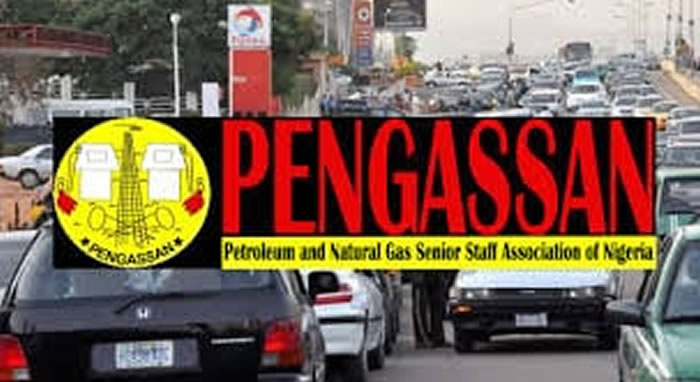Nigeria’s oil and gas industry was thrown into fresh uncertainty on Monday as the Petroleum and Natural Gas Senior Staff Association of Nigeria (PENGASSAN) commenced a nationwide strike, leading to the shutdown of key regulatory institutions including the Nigerian National Petroleum Company Limited (NNPC), the Nigerian Upstream Petroleum Regulatory Commission (NUPRC), and the Nigerian Midstream and Downstream Petroleum Regulatory Authority (NMDPRA). The development has heightened fears of possible fuel scarcity, supply disruptions, and broader economic shocks if the industrial action lingers.
The strike, which began after weeks of tension between oil workers and government agencies, was triggered by what PENGASSAN described as poor working conditions, unresolved welfare issues, and continued neglect of agreements reached in past negotiations. Officials of the union said the strike was a last resort after several attempts at dialogue with the government failed to yield tangible outcomes.

Early reports from Abuja, Lagos, and Port Harcourt confirmed that workers had downed tools at the corporate headquarters of the regulatory bodies. In several locations, union members were seen locking offices, preventing operations, and insisting that the shutdown would remain in force until their demands were met. This effectively halted core regulatory functions such as licensing, monitoring of crude production, and approvals for petroleum product distribution.
PENGASSAN President, Festus Osifo, addressing journalists in Abuja, said the union had exhausted all avenues of dialogue before taking the drastic step. According to him, workers in the oil sector remain central to Nigeria’s economic survival, and any government that fails to prioritize their welfare risks destabilizing a sector that provides over 70 percent of national revenue. He added that the strike was not intended to punish Nigerians but to press home the urgency of addressing long-standing grievances.
The Nigerian economy, already grappling with inflationary pressures and foreign exchange volatility, could face additional strain if the strike persists. Fuel marketers have expressed concerns that supply chain disruptions may begin within days, as regulatory approvals and oversight functions are suspended. Some depots in Lagos and Warri were already reporting difficulties in securing clearances for product distribution as at Monday evening.
In response to the strike, the Ministry of Labour and Employment called for an emergency meeting with PENGASSAN leadership, urging the union to suspend its action while negotiations continue. A senior ministry official who spoke on condition of anonymity said government was aware of the risks posed by the strike and was determined to prevent a prolonged disruption. However, union leaders have maintained that only concrete actions—not promises—will convince them to call off the shutdown.
Meanwhile, officials of the NNPC have moved to reassure Nigerians that contingency plans were being considered to minimize disruptions. They stressed that fuel stocks in strategic reserves remain available to cushion any immediate supply shock, though admitted that prolonged industrial action would inevitably affect the flow of products across the country.
The Nigerian Upstream Petroleum Regulatory Commission (NUPRC) and the Nigerian Midstream and Downstream Petroleum Regulatory Authority (NMDPRA), both heavily affected by the shutdown, have yet to issue official statements. Analysts, however, warn that their inactivity could stall major operations, including crude oil monitoring, export clearances, and oversight of fuel importation. Such delays, they argue, could also affect Nigeria’s compliance with OPEC production quotas, with implications for government revenue.
Oil industry stakeholders have reacted with a mix of concern and frustration. The Independent Petroleum Marketers Association of Nigeria (IPMAN) urged both parties to quickly resolve their differences, warning that Nigerians must not be made to suffer from a breakdown in dialogue. Civil society organizations also weighed in, appealing to the federal government to act swiftly to protect the livelihoods of millions who would feel the impact of any fuel scarcity.
The strike comes at a sensitive time for Nigeria’s oil industry, which has been undergoing reforms under the Petroleum Industry Act (PIA). While the government has argued that reforms are intended to improve transparency and attract investment, labor unions have often expressed fears that such changes could marginalize workers and weaken their bargaining power. PENGASSAN’s latest action appears to reflect these broader concerns about how reforms are implemented in practice.
Economic experts caution that even a few days of strike-induced disruption could ripple through the economy. Nigeria relies heavily on petroleum products for transport, power generation, and industrial use, meaning any interruptions could fuel inflation and slow productivity. With food prices already high, a prolonged fuel shortage could worsen hardship for households and small businesses.
As the standoff continues, attention has shifted to the federal government’s ability to negotiate effectively with PENGASSAN. Some observers argue that stronger dispute-resolution frameworks are needed to prevent frequent industrial actions that destabilize vital sectors. Others insist that government must do more to build trust with labor unions by honoring past agreements and ensuring timely interventions before issues escalate.
By Monday evening, there were growing queues at a few filling stations in Abuja and Lagos as motorists rushed to buy fuel amid fears of imminent scarcity. While supplies were still available, marketers warned that panic buying could worsen the situation if clarity on the strike’s duration is not provided soon.
The next few days will be critical as negotiations between the government and PENGASSAN unfold. Nigerians are watching closely, hoping that both sides will prioritize national interest over conflict. If no agreement is reached quickly, the strike could escalate into one of the most disruptive in Nigeria’s oil sector in recent years, with consequences for businesses, households, and government revenue.
Support InfoStride News' Credible Journalism: Only credible journalism can guarantee a fair, accountable and transparent society, including democracy and government. It involves a lot of efforts and money. We need your support. Click here to Donate
